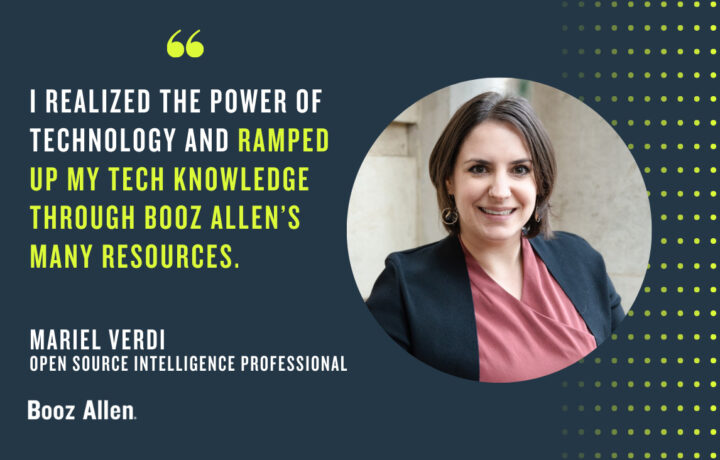Open-source intelligence (OSINT) fills a unique role within the fields of national security and intelligence gathering, relying on information that is publicly available to deduce what most of us won’t see. By parsing through public domain sources like newspapers, radio, television, social media, and more, OSINT experts can gain valuable geopolitical insights, and better understand the intentions, capabilities, and vulnerabilities of the nation’s adversaries.
Social media and digital technology have transformed this field, exponentially increasing the amount of available data. Meanwhile automation, decentralized data processing, and AI/machine learning (ML) capabilities are transforming what’s possible in terms of analysis scale and speed.
“We’re at a really interesting cusp, not only in terms of ML and AI, but also in how we support our partners and clients in the U.S. government by providing them the information they need to make decisions about military and intelligence strategy,” says OSINT expert Mariel Verdi, who supports Booz Allen’s clients in the national security sector.
Mariel has been working at the intersection of technology and intelligence throughout her Booz Allen career. As threats against land and space assets intensify, she shares her story and perspectives on this evolving and increasingly essential field.
Building Skills in a Transforming Field
Mariel joined Booz Allen at the same time as defense and national intelligence organizations began recognizing OSINT as a unique intelligence field, buoyed by digital transformation and the proliferation of social media. When her husband took a job in the UK, she was able to make a geographic and career move at Booz Allen, igniting her passion for the emerging intelligence discipline through her clients’ critical security missions. As she took on a role helping the team navigate complex and changing security requirements, she soon realized she needed to amp up her tech knowledge.
She tapped into the firm’s many resources for professional development and tech training, starting with Booz Allen’s Data Science 5K, an initiative that sought to upskill non-technical employees and grow the firm’s pool of data scientists, immersing them in an intense data science bootcamp.
“This equipped me to apply Python, data visualization, and multiple types of data sets to my work,” she says.
During Mariel’s third OSINT-enabled client engagement, she applied her new data analysis and visualization skills to expand both her client’s capability and her own skills. “We were a really cool team focused on data fusion,” says Mariel. “That’s where I got to learn geographic information systems, which is now one of my favorite topics.”
Mariel also used Booz Allen’s FlexEd benefits to help her build skills, through partially funding a certificate in telecommunications. “I’ve had to learn about a lot of topics that I never would have thought I would know anything about,” she says. In her journey to the UK and back, she has found her colleagues to be another invaluable source of wisdom and support. “I’ve been able to learn and apply these awesome technical skills, thanks to the help of some really smart people.”
Embracing Variety, Curiosity—and Humility
Mariel’s work on OSINT initiatives at the ground level has been comprehensive and wide ranging. “It covers everything from the tools and resources that are available to the ethical lines we should establish in pursuing publicly and commercially available information for intelligence purposes,” she says.
Her data expertise is needed at every step: from secure data collection and analysis to storage in a data lake and delivery in an accessible format. Other team members must translate languages, train teams, map tactics to mission requirements, and more.
But, according to Mariel, soft skills are also vital for a successful OSINT career. For example, agility and flexibility are important, as official OSINT career paths are just starting to take shape in the federal and contracting communities. Other requirements are curiosity, determination, and “a strong dose of humility,” says Mariel.
“You’re going to hit a lot of dead ends in your research,” Mariel explains, “so you have to be able to look at things from different perspectives and then go back in and research it in a different way to try to find a different result,” she says. “And the internet itself is evolving in its structure. You have to realize there are a lot of things you don’t know.”
Explore cleared careers in national security at Booz Allen
Learn more about Booz Allen’s work in National Intelligence
SPONSORED CONTENT: This content is written on or behalf of our Sponsor.




